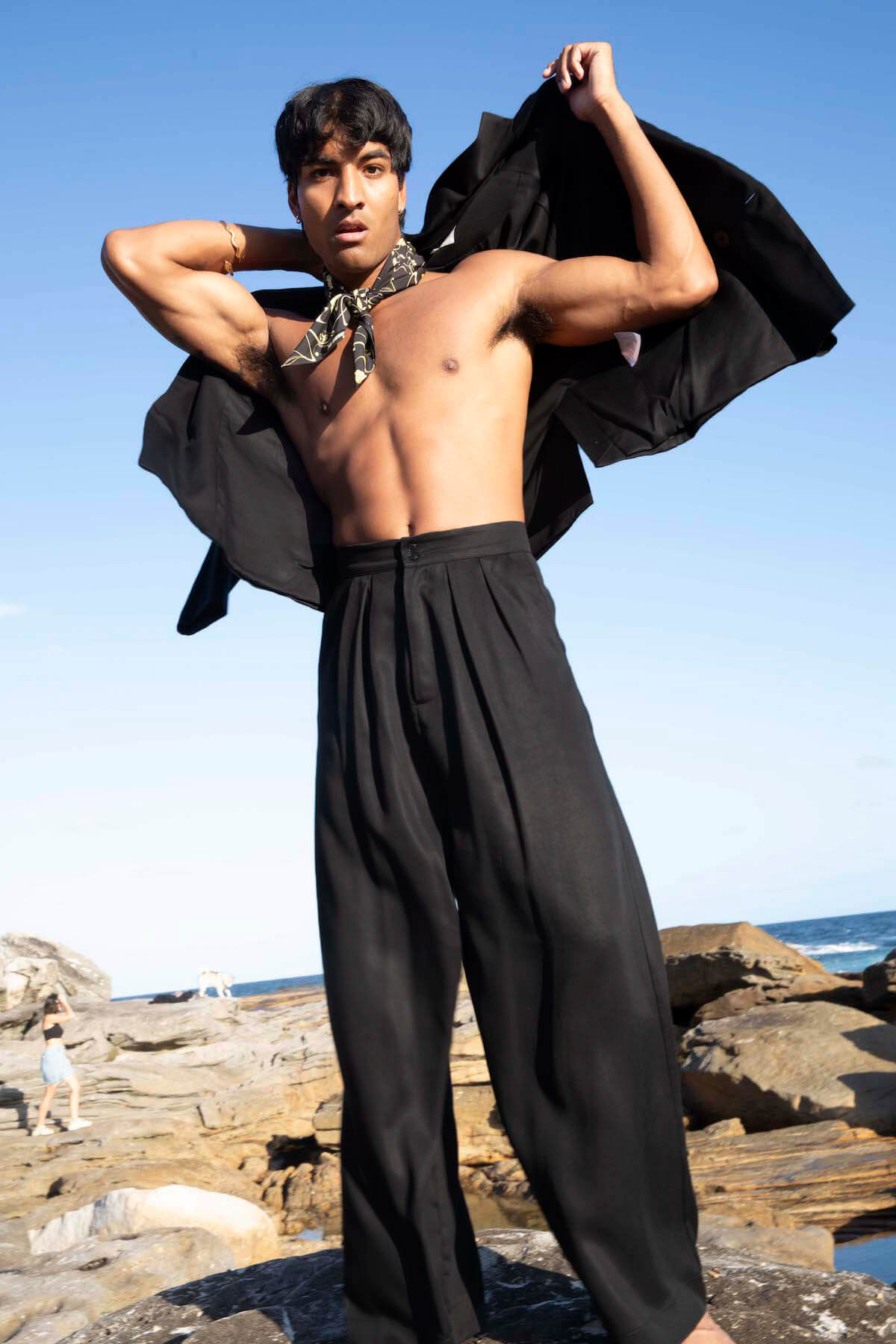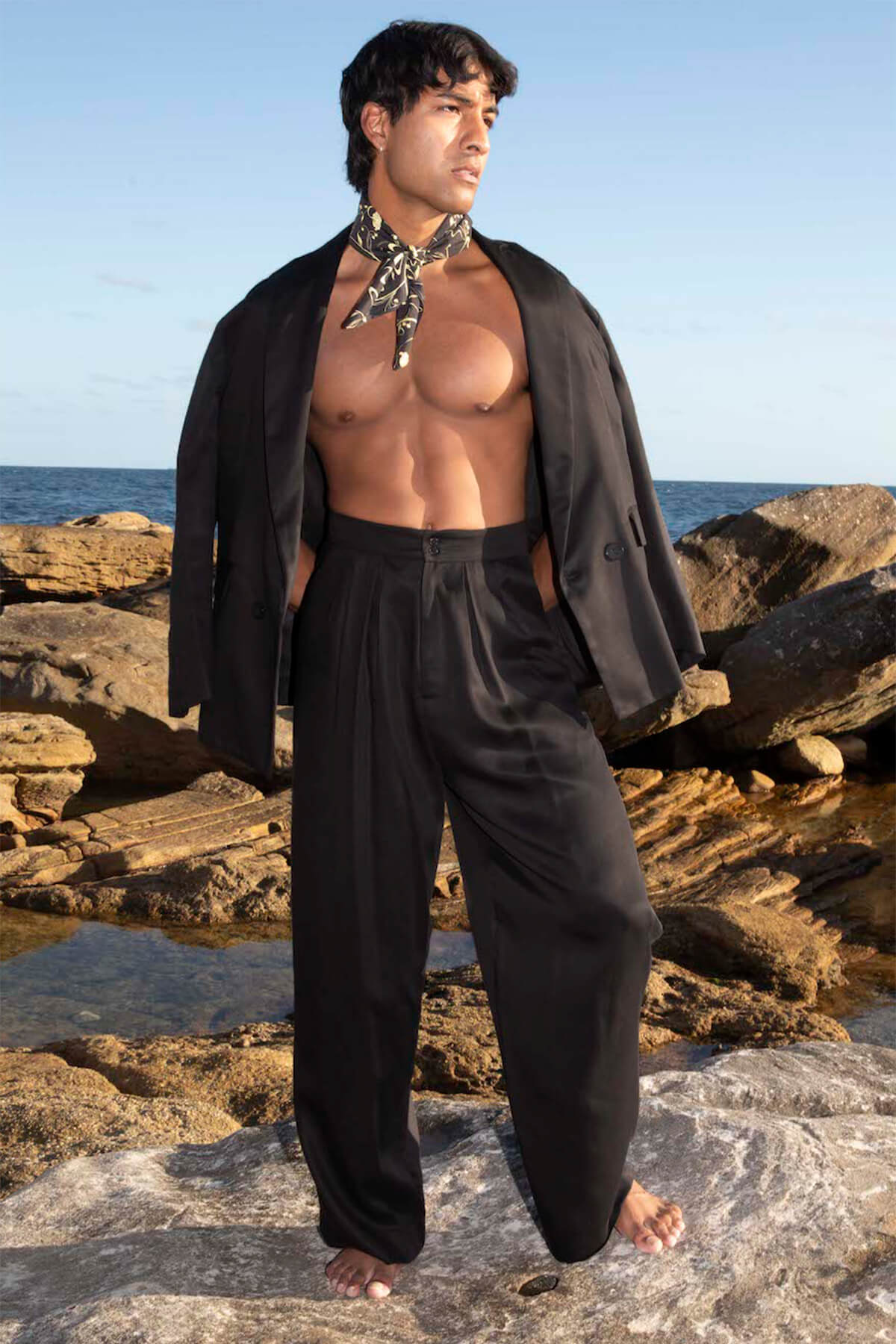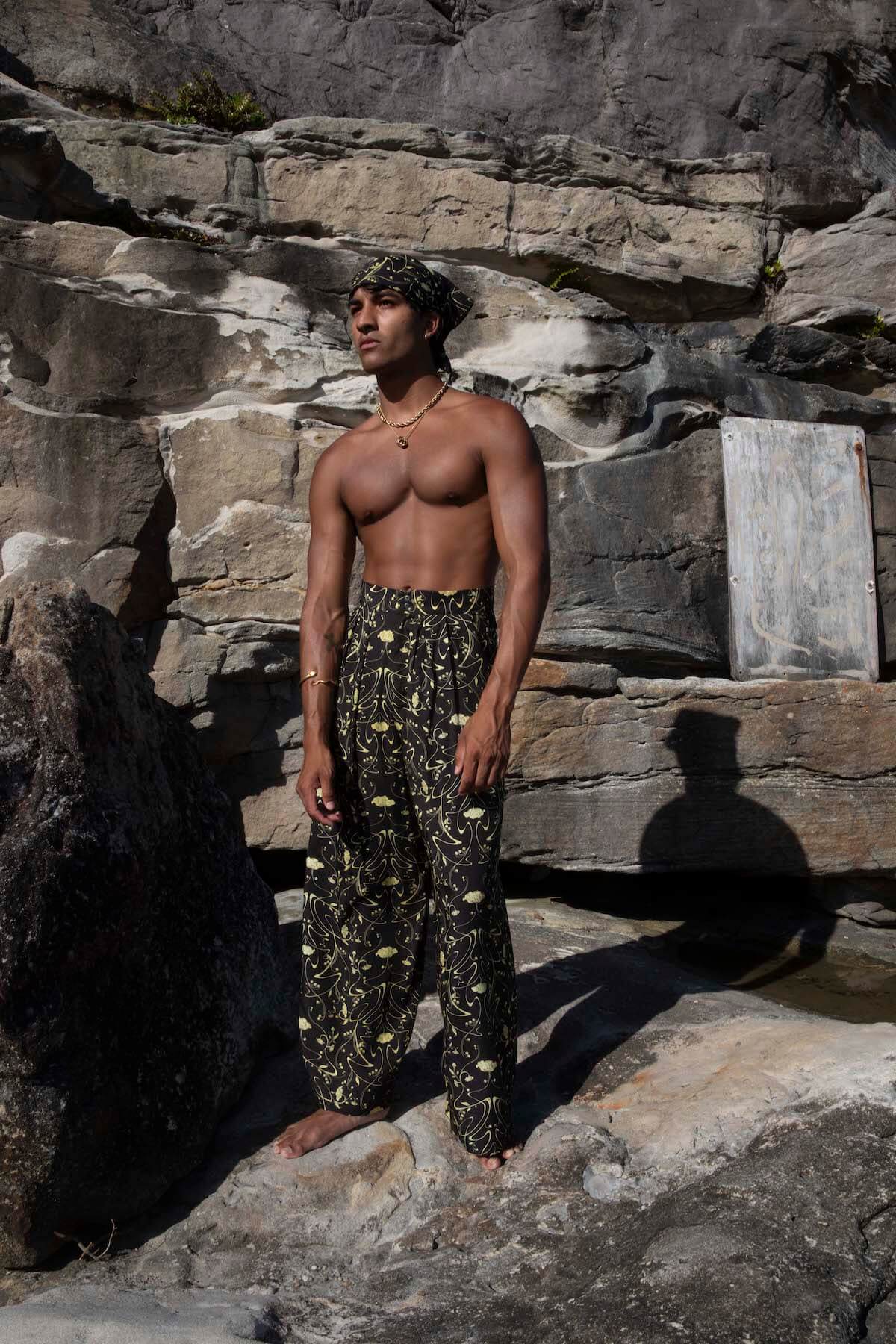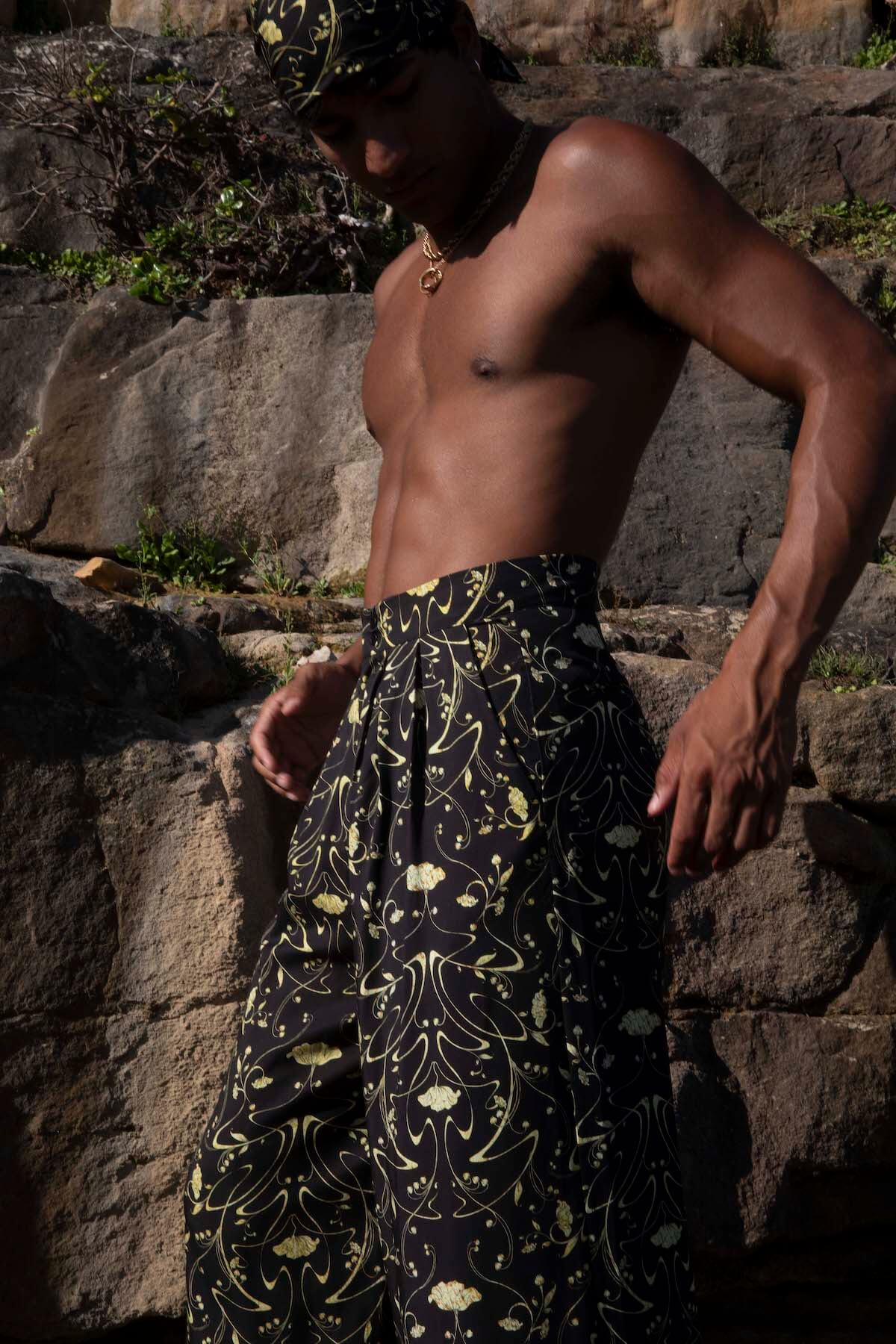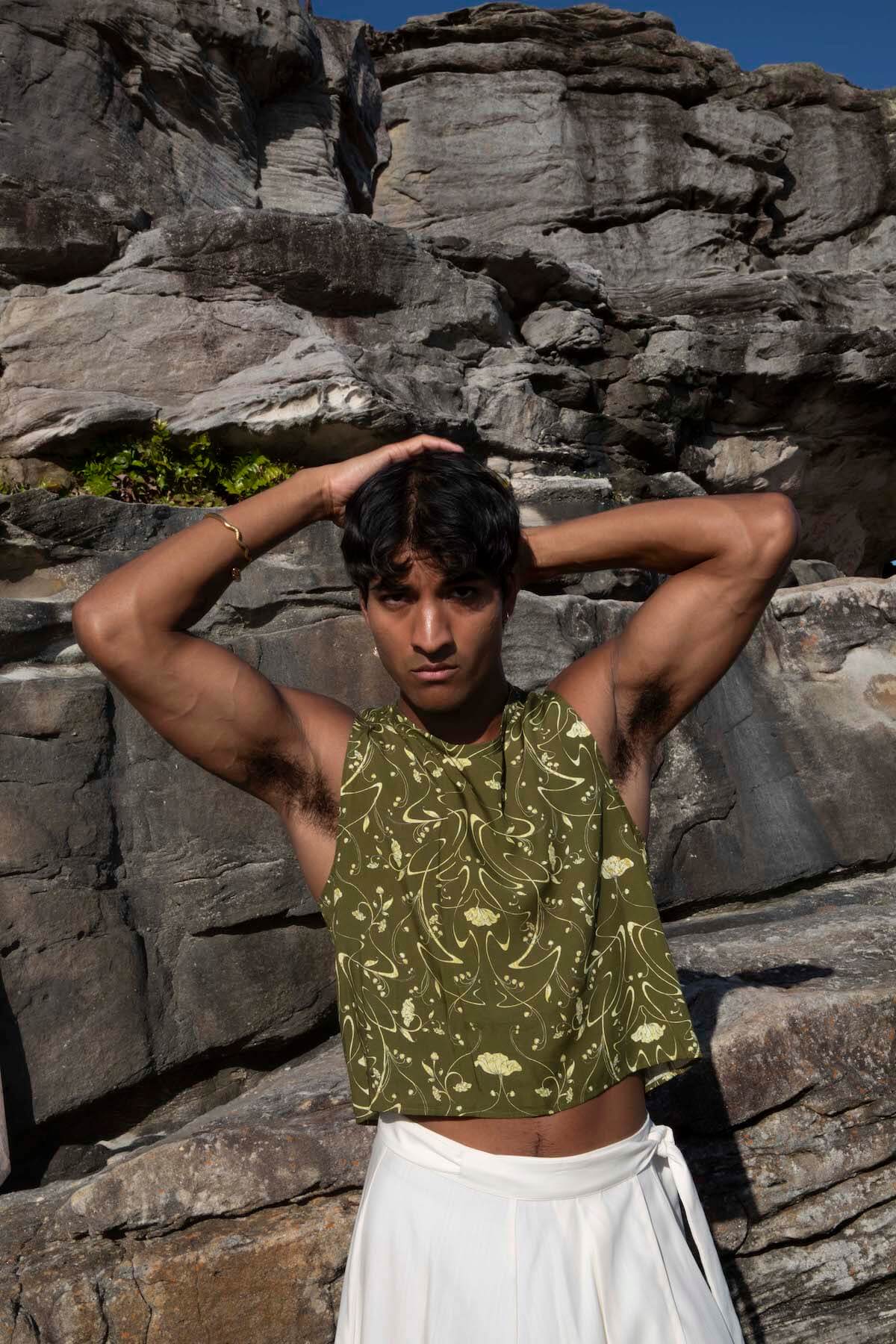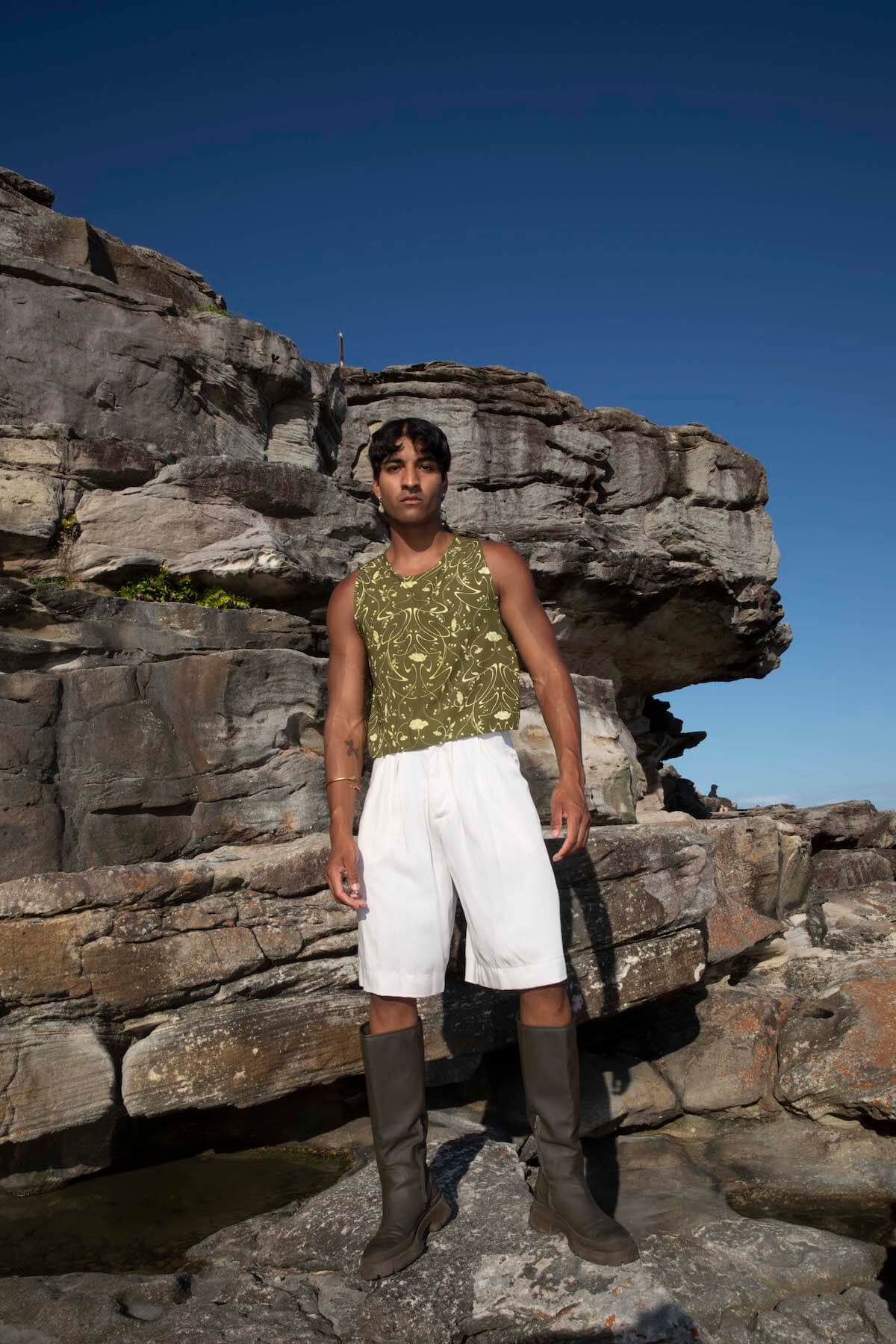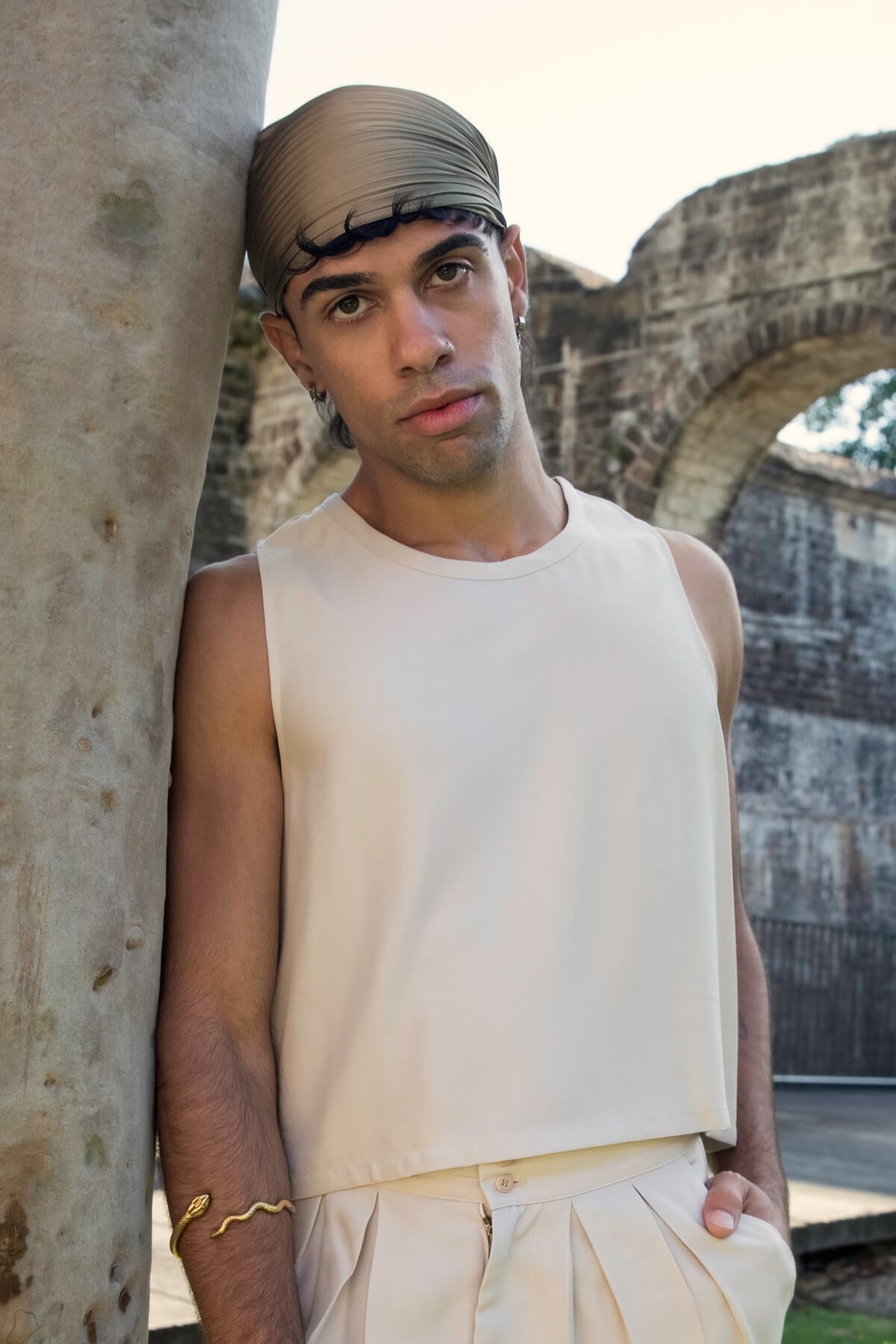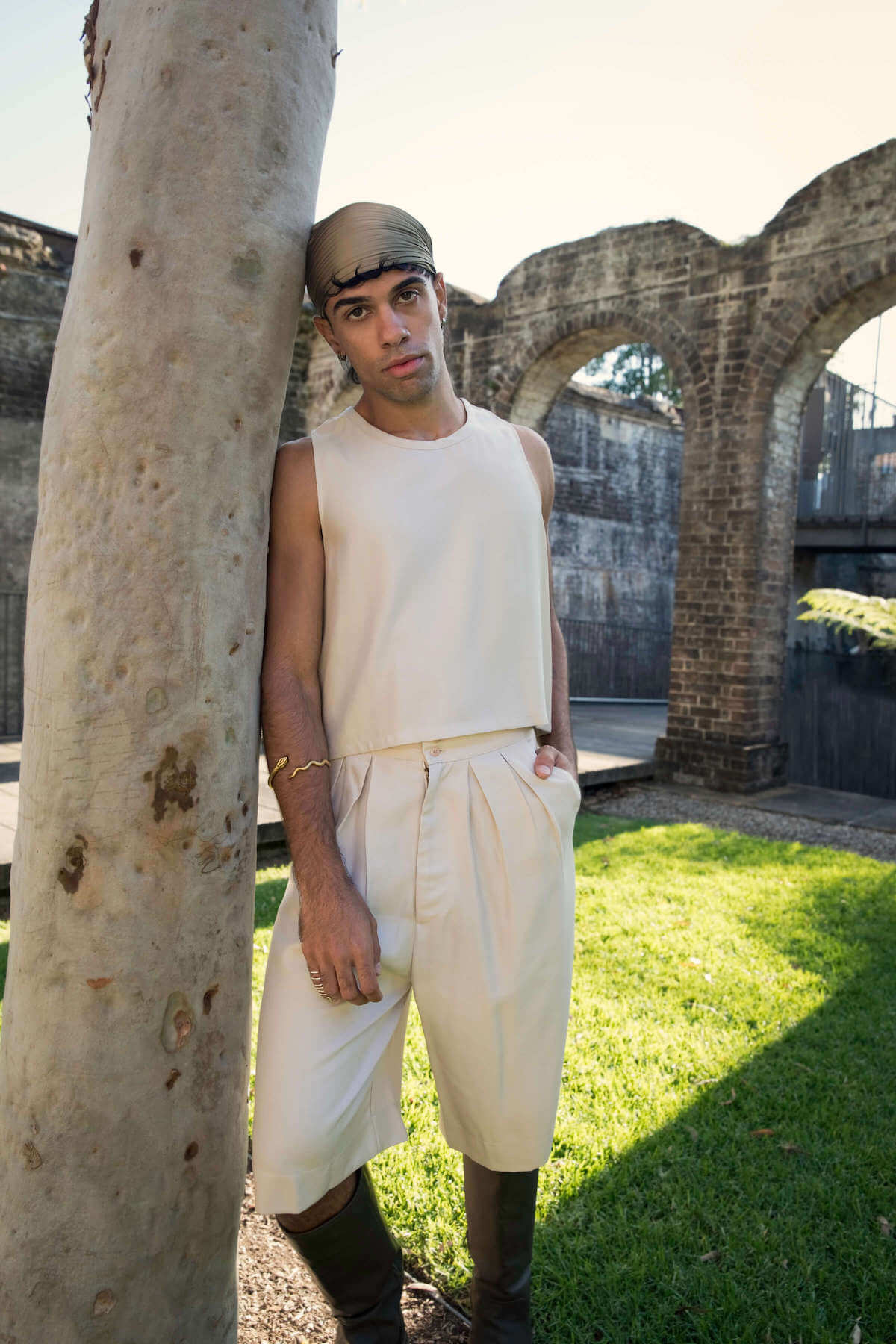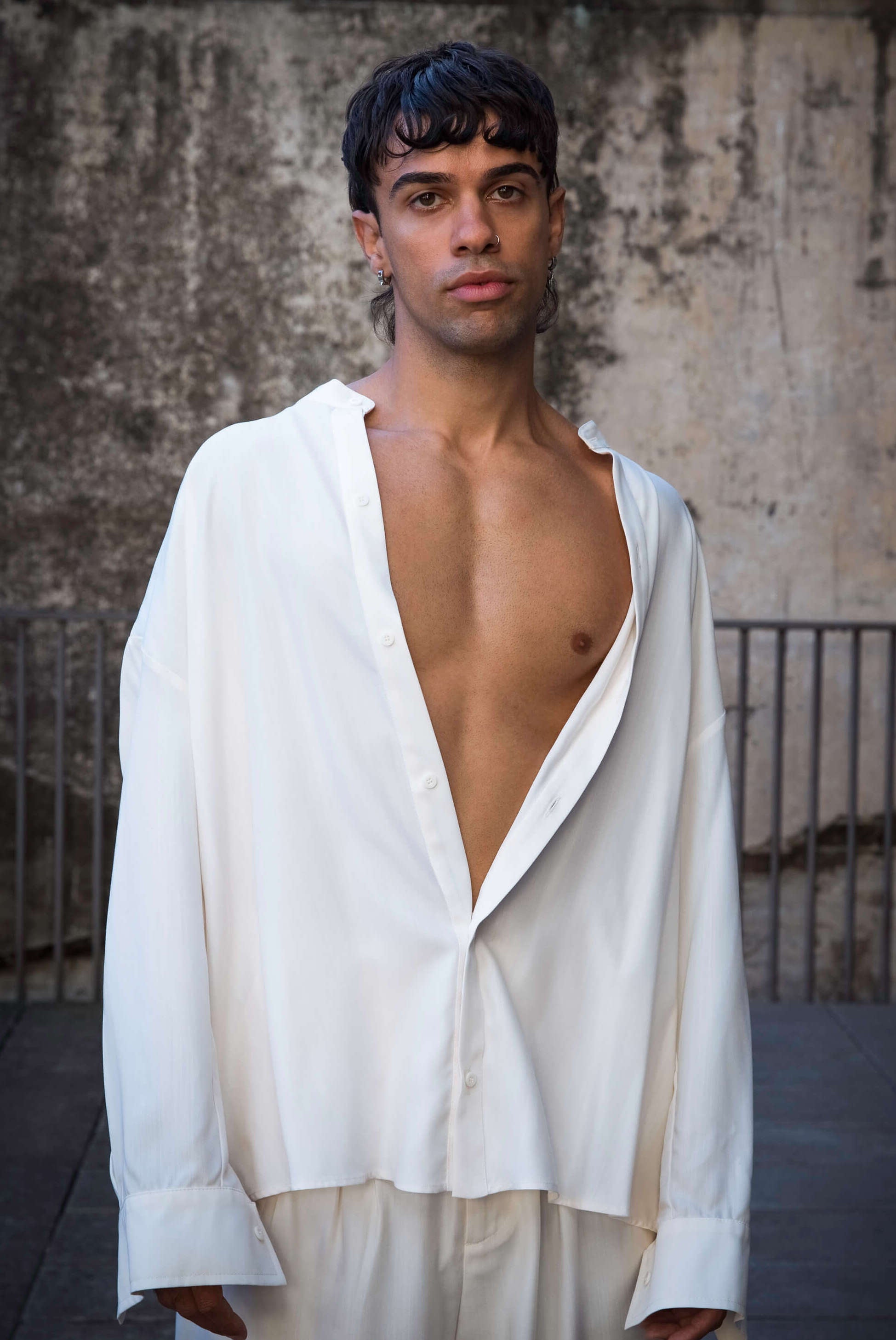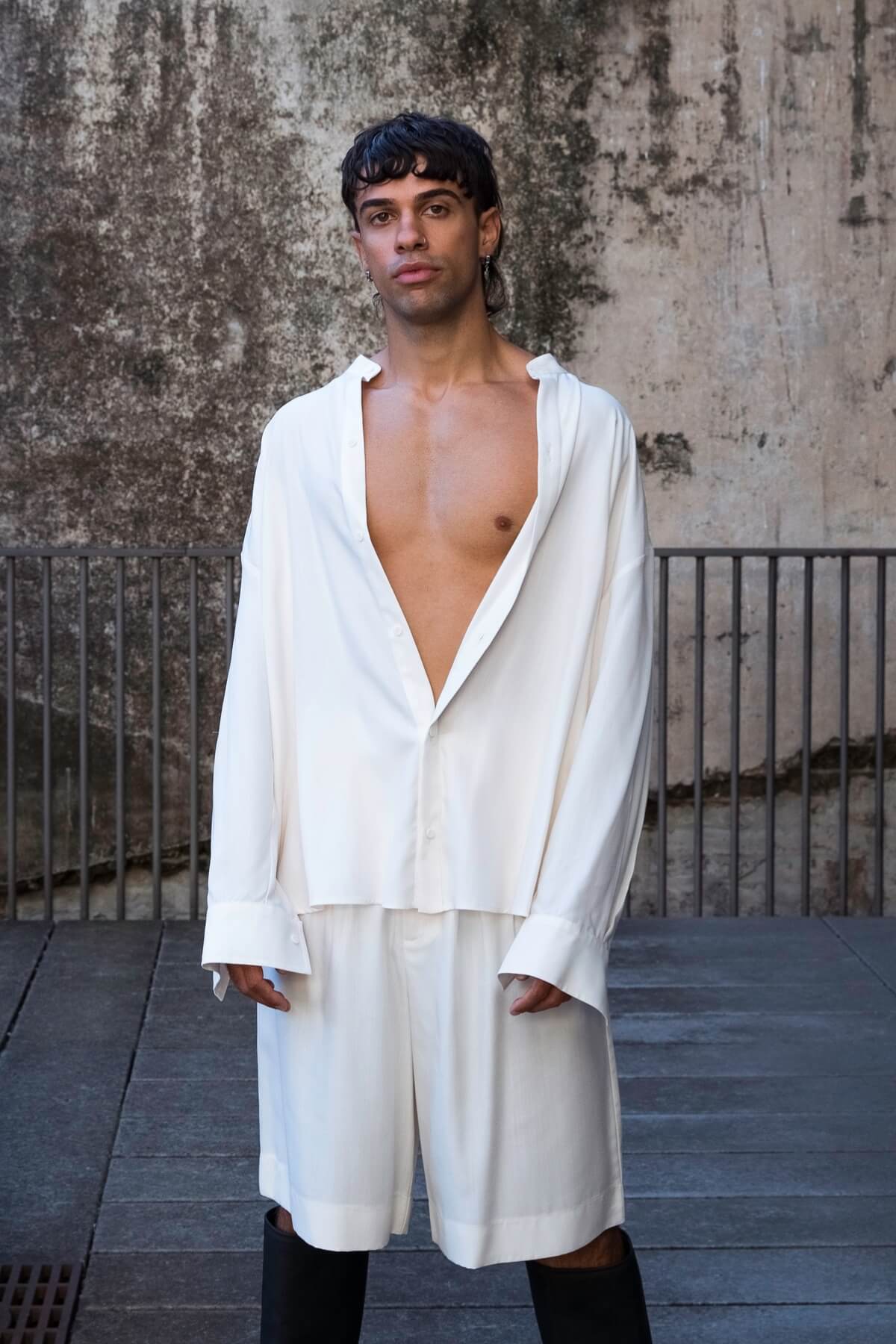Design & development
How we design
The majority of our design process happens digitally. Initial collection sketches are done on Adobe Photoshop and we are fortunate enough to have access to 3D design software that simulates a virtual, true-to life garment visualisation.
This incredible software allows us to test, toile and try every variation of each piece before using any fabric, a true example of ‘measure twice, cut once’.
From here, we do an initial sample, make any necessary adjustments & transfer the changes to our digital patterns, re-simulating the garment and approving for production.
fabrics
What we make it from
We only source and use fabric that ticks the below boxes:
- It has a traceable supply chain - We know where, when and how was it made
- It is made from a biodegradable cellulose fibre (meaning a natural, plant-based textile that will easy return to the earth if need be)
- The fabric is a pure mono-material (i.e. non-blended as mixed fabrics complicate recycling efforts)
Currently our 100% TENCEL™ fabric is produced & supplied by our partners at Mozartex with a fully traceable supply chain & dyed using low impact dyes and treated wastewater.
Our 100% Recycled Cotton is sourced from New Denim Project and upcycled from post-industrial waste with minimal water and energy consumption & using no dyes or chemicals .
production
Who makes it
Keeping our environmental footprint to a minimum was a top priority when beginning this journey.
After two makers (or production houses) shut their businesses during the early stages of our development, we ended up finding a fantastic local cutter and maker right here in Sydney.
Attention to detail requires a hands-on approach, which is why The Glade only works with responsible manufacturing partners.
Having our production team within 5km of our studio in Surry Hills allows us to drastically lower our carbon footprint, support local business and keep a close-eye on our supply chain, not to mention pop in for a chat if we’re in the area.
This ensures a much smaller environmental footprint and fair working wages protected by Australian labour laws.
care & repair
How to care for your garment
To preserve the quality of your garment, the best thing you can do is hand wash. We understand though not many people have the time or patience, so a gentle machine wash on cold is just as good.
To wash, turn your garment inside out and wash in cold or cool water with a dash of mild, natural detergent, especially for natural fibres that need a little more TLC.
To dry, hang your garment in a shaded area. Do not tumble dry. Exposing garments to lengthy periods of heat at high temperatures damages fibres and shrinks garments, plus it increases the carbon emissions of the average garment by 50%.
Always refer to your garment’s label for precise care instructions
After wear
What to do when it's time to let it go
We offer a take-back program where you can return your pieces from us that are a little ‘too’ loved and we will use them for research, repurposing and recycling.
As a thank you for supporting the environment, we’ll give you a $15 voucher for your next purchase.
Our Fabrics & Trims
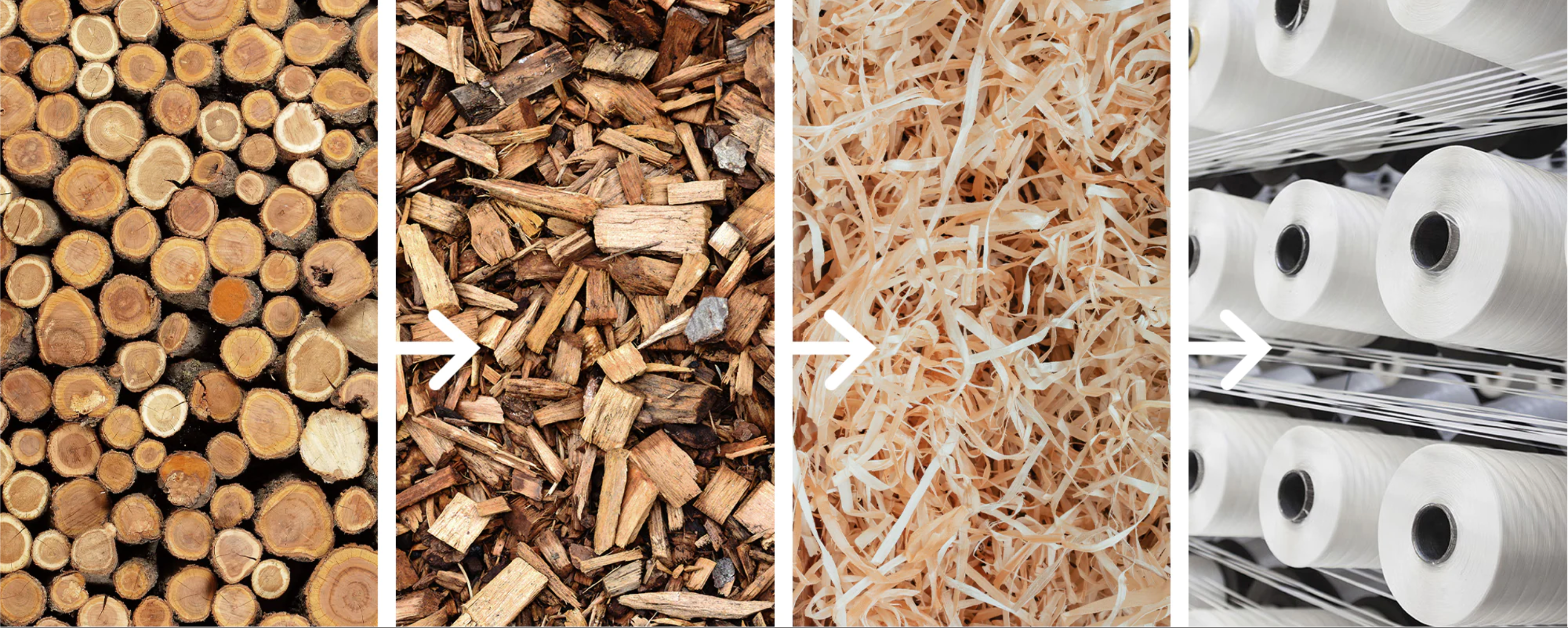
TENCEL™ Lyocell
We use pure TENCEL™ Lyocell fibres, known for softness, strength and breathability (and it's complete biodegradability).
Lyocell is a cellulose fibre, meaning one made from natural plant-based material. In this case, Lyocell is wood pulp that has been wet, spun and dried into yarn and then woven into cloth.
TENCEL™ goes one step further, using fibres only derived from certified sources in sustainability managed forests, with about 50% coming from their own eucalyptus tree farms, and the other from nearby Western European countries, all certified by the Forest Stewardship Council (FSC).
They also use a closed-loop system which recycles and reuses its water-based solvents, minimising their environmental impact of production.An organic solvent is used instead of sodium hydroxide to dissolve the pulp. The production of Tencel™ requires less water and energy than cotton and, as a natural fiber, Tencel™ is also biodegradable. Lenzing AG (the parent company of TENCEL ™) says the solvent recovery rate for their version is an impressive 99%.
All TENCEL ™ Lyocell fibres have certification codes which can be used to trace their production and development.
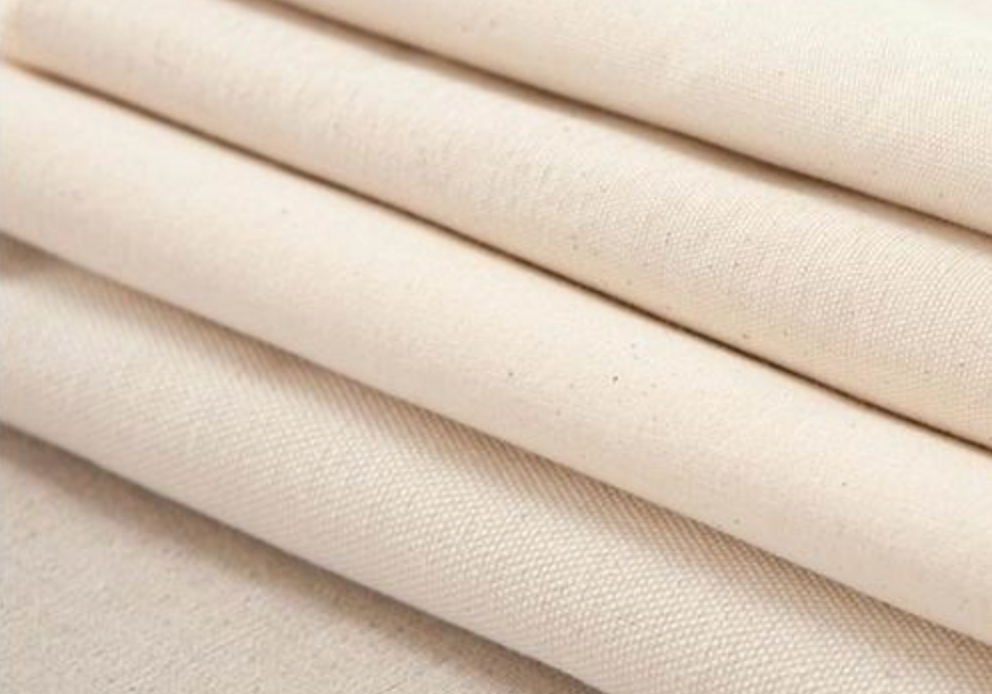
Recycled / Upcycled Cotton
We have also sourced 100% upcycled cotton from the New Denim Project.
Created by a third generation, family-owned textile mill in Guatemala, this range of woven fabrics by collecting and sorting post-industrial cotton waste from local garment factories and grounding these scraps back into fibre.
These fibres are then spun into new yarns again and woven into new fabric. This up-cycling process minimises water and energy consumption and uses no dyes, chemicals or synthetic fibres. Although we are planning on printing this fabric, it does come to us undyed.
Easy-care, non-stretch, machine washable fabric - a dream choice for you and the planet.
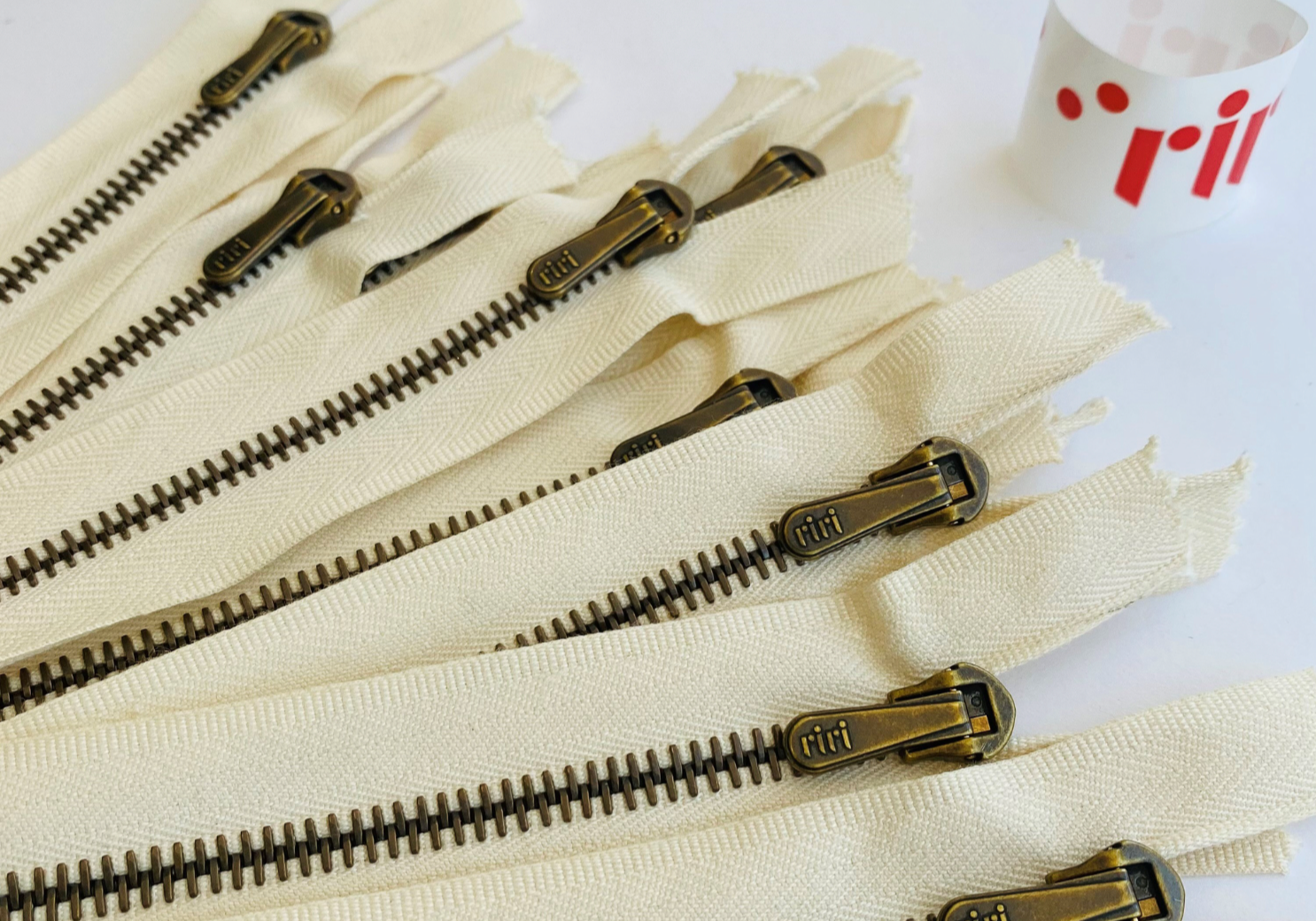
Trims
This is where things got tricky. Well…more tricky than they already were (you can only imagine how many types of buttons there are)
Finding ethically conscious accessories and trims was the initial challenge. Even harder yet was to wade through the greenwashing that many large suppliers market themselves with.
Along with our fabrics, we needed to find;
1. Thread
Many makers currently use a poly-cotton blend - strong and affordable, however this is both a blended fibre and a proponent of virgin plastic - i.e. not so good. So we found both Organic Cotton, and TENCEL multi-purpose sewing threads, however given our small first run this couldn’t be used.
2. Fusing/Interfacing
Again, polyester was everywhere. We ended up finding an OEKO-TEX certified cotton fusing with a formaldehyde-free resin produced by Freudenberg Vilene however this made our fabric lose it’s drape.
3. Buttons
Corozo nuts are taken from the Tagua palm species across northwest South America (Peru, Ecuador, Colombia and Panama). Also known as vegetable ivory, Corozo is regarded as naturally durable, scratch resistant and hard-wearing with a smooth finish. Corozo buttons can be machine washed, steamed, dry cleaned and ironed with no effect. These buttons are OEKO-TEX certified and dyed with plant-based, non toxic dye.
4. Zippers
Made in Switzerland by RiRi the luxury sustainable designer zip company, we use both 100% GOTS certified organic cotton and a recycled polyester tape depending on availability. All our zippers are made with recycled brass teeth and stoppers .
5. Labels
Brand and size labels are printed on certified organic cotton with our care labels printed on recycled polyester for now.
